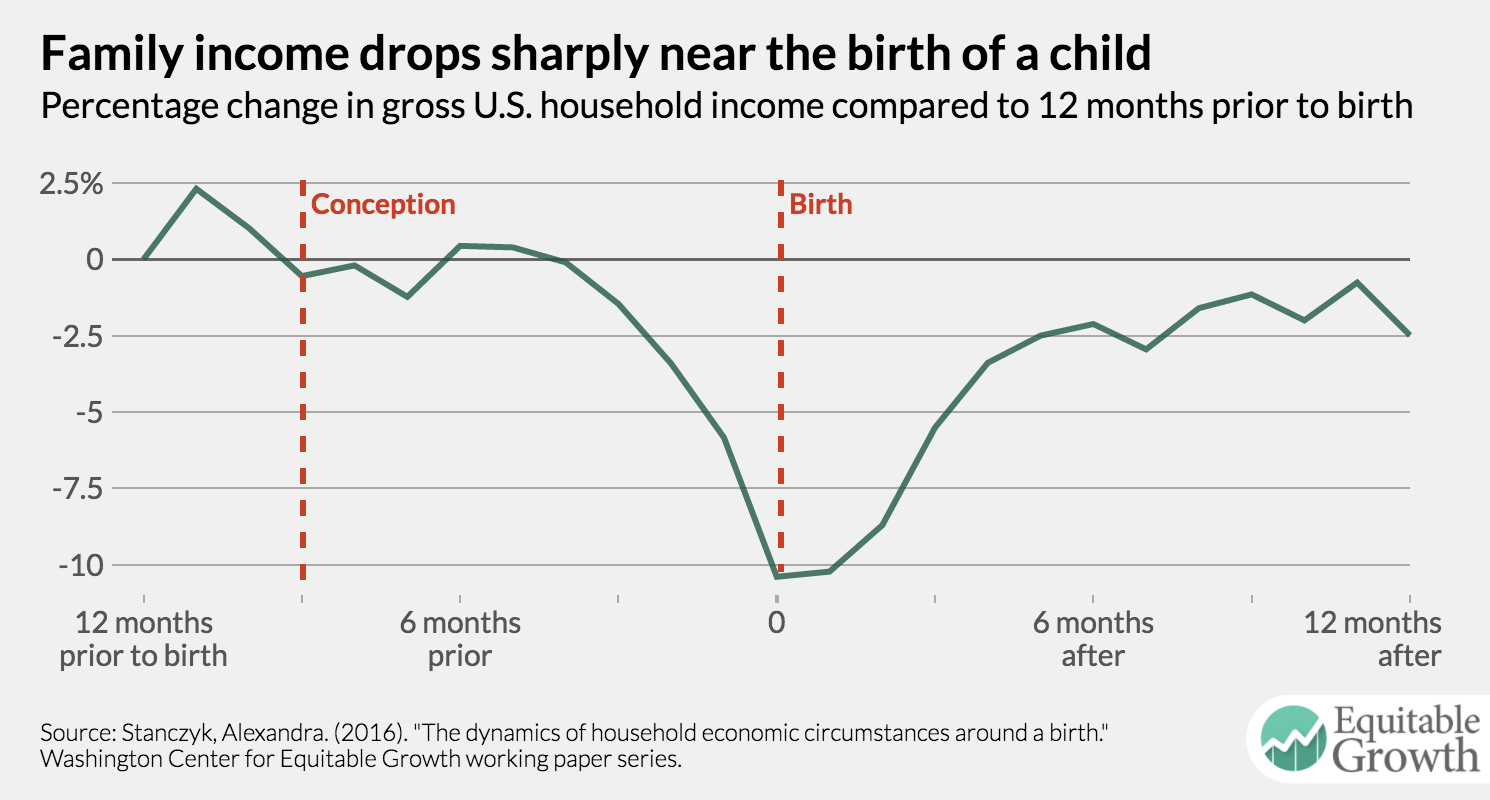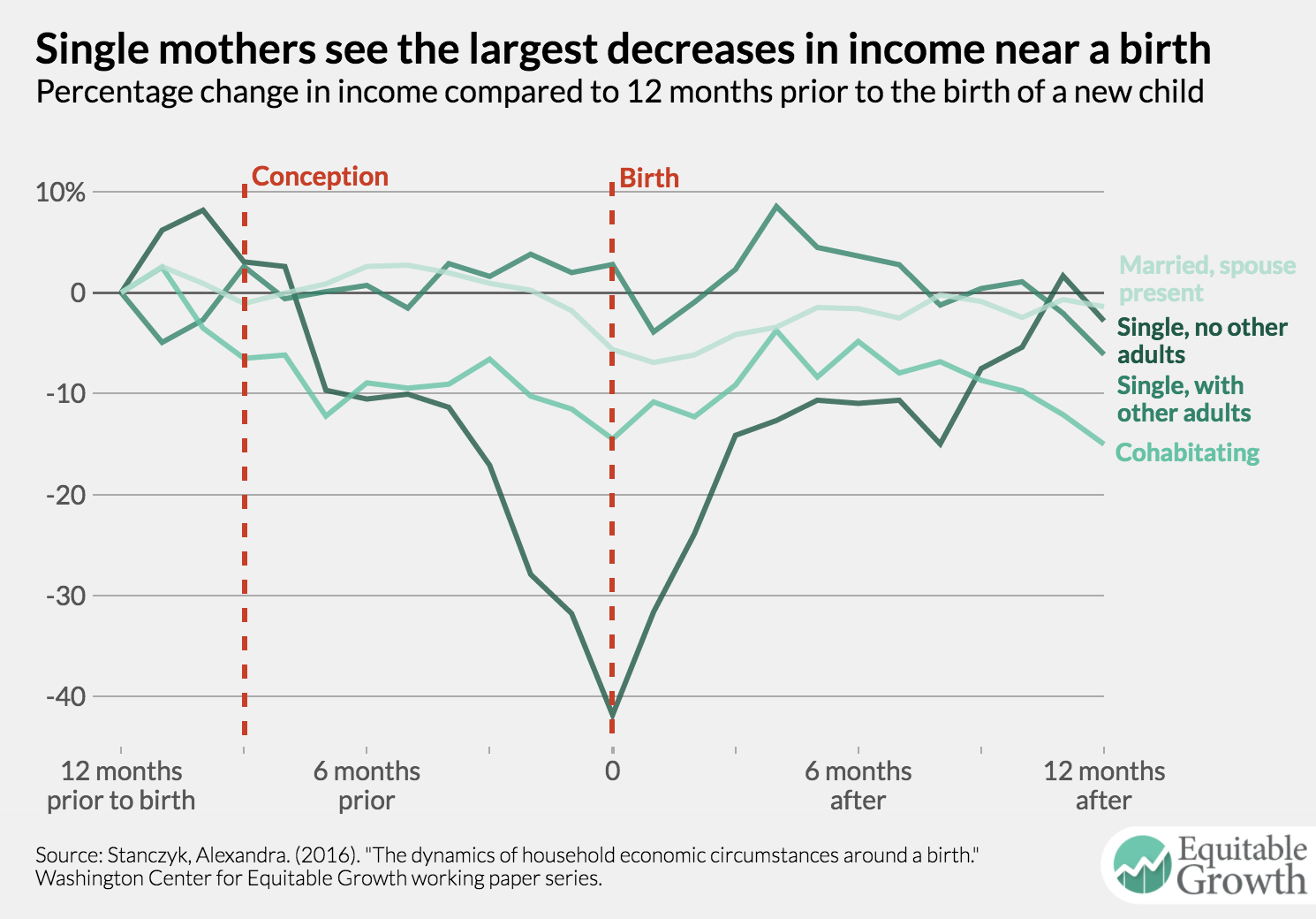How Having Children Affects Incomes of Men and Women Differently

By:
Having children can be pretty difficult in America, in part because of the high cost of childbirth and in part because of the cost of raising a child. But just how a household's finances change in the year leading up to and following the birth of a child can vary dramatically, according to a new working paper by Alexandra Stanczyk, a postdoctoral scholar at the University of California, Berkeley, School of Social Welfare.
 Equitable Growth - equitablegrowth.org
Equitable Growth - equitablegrowth.org
Household income and economic well-being drop substantially around the time a child is born, Stanczyk found, using data in the Survey of Income and Program Participation. That's not too surprising.
But one discovery was staggering: For a single mother, average family household income drops a whopping 41.8 percent, compared with a decline of only 10.4 percent for households in general.
 Equitable Growth - equitablegrowth.org
Equitable Growth - equitablegrowth.org
Households with less-educated mothers (i.e., those without a high school degree) experienced the biggest drop in income. They also quickly returned to their pre-birth income levels, according to the paper. (Single mothers saw a similarly rapid increase of their income after giving birth, likely for similar reasons.)
The findings correlate with other research, which found that one-fourth of women return to work because of a lack of maternity leave benefits and because of financial hardship, according to the Washington Center for Equitable Growth.
The study highlighted another issue around child-bearing: the financial volatility of mothers' incomes when compared with that of fathers. It's a contributing factor in economic gender inequality, according to the Washington Center:
"[The] mother’s share of household income sees the largest decreases, while the father’s share of household income increases. In other words, pregnancy and childbirth widens the gender wage gap."
Stanczyk argued for strengthening public programs to help families: "[Existing] social safety net programs help buffer declines in overall economic well-being around birth, but could do more."
